Mastering Sales: The Key Ingredients of the Sales Coaching Process in Brisbane
A powerful salesforce is not only an asset—it’s an absolute necessity in the highly competitive business landscape of Brisbane. The ability to adapt swiftly, understand the unique market dynamics and foster long-term client relationships is what sets businesses apart in this thriving metropolis. To stay ahead, you need an investment in the right kind of sales coaching, sales training course and support services for your sales personnel.
In Brisbane’s corporate landscape, the journey to sales excellence is further enriched by the critical influence of the sales coaching process. Amid all the things that can contribute to a thriving business, harnessing the power of effective sales coaching stands out. Dive into these practical strategies, success tips, and crucial components to transform your sales skills training into a full-fledged business victory formula.
The key to a successful sales coaching process in Brisbane, just like Australia-wide, lies in identifying individual development needs, setting performance goals, providing personalised feedback, implementing effective training programs, and tracking progress and results.
Essential Components of Sales Coaching
Sales coaching plays a critical role in enhancing the skills and performance of sales professionals across most industries and organizations in Australia. To achieve success in the fiercely competitive sales landscape of Brisbane, several essential components such as sales strategies, and workshops need to be integrated into your sales process. These components enable your team to develop relevant skills, improve work productivity and excel in their roles.
One crucial component of sales coaching is goal setting. This vital step involves setting specific, challenging yet attainable sales targets aligned with the overall business objectives. The program can further include product-specific goals, especially for businesses that have a broad product range. By allowing sales trainers to create clear benchmarks, your sales team can track their progress and stay motivated on their sales success journey.
Another critical aspect of effective sales coaching is skill development. A salesperson needs to understand the nuances of selling products or services, negotiation techniques, objection handling, and relationship-building with clients. Sales coaches play a crucial role in identifying skill gaps and providing targeted guidance to bridge these gaps.
Lastly, a successful sales coaching process includes an integrated training program. While one-on-one coaching sessions are valuable for personalized guidance, group sales training courses provide collaborative learning. Such training programs cover various aspects like product knowledge, customer understanding, market trends, and advanced sales techniques. This holistic approach to skill development fosters a robust salesforce.
Communication Development
Effective communication lies at the heart of successful selling. In bustling cities like Brisbane, sales professionals need to hone this skill to build meaningful connections and provide the best customer service with prospects and potential clients. This aspect is a central part of any sales training courses or coaching programs, allowing your workforce to stand out in any interaction they engage in.
At its core, developing effective communication involves the art of active listening along with eloquent expression. For instance, when a sales professional engages with a potential client, the professional needs to actively listen to the client’s needs, understand their concerns, ask probing questions and provide solutions. It’s important that a sales professional can articulate the value proposition and tailored solutions that resonate with the client.
Moreover, the influence of non-verbal cues such as body language, facial expressions, and tone of voice cannot be understated. An employee’s ability to align these cues with their spoken information can greatly affect how the content of their message is perceived by clients. Sales coaches guide participants on this, playing a significant role in refining their communication skills.
Throughout the sales coaching process, sales coaches employ various strategies, such as role-playing exercises, providing constructive feedback, and offering tips on effective verbal and non-verbal communication techniques. By practising these strategies in a supportive coaching environment, sales professionals gain confidence in their ability to engage clients effectively.
Training and Skills Advancement
The fast-paced and ever-evolving nature of the sales industry promotes the constant enhancement of skills and knowledge among sales professionals. When customer expectations and business environments are continually shifting, it is a challenge for sales professionals to remain adaptable, proactive, and become the best version in their job roles.
Dynamo Selling, in Brisbane, caters to this need by offering sales coaching programs tailored to meet the specific needs of sales teams. These programs focus on essential and advanced skills, thus fostering an atmosphere conducive to learning and growth. With a seasoned team of sales experts highly committed to providing results, Dynamo Selling has become the go-to destination not only in Brisbane but also in Sydney, Melbourne, and Perth for those seeking not just generic advice but actionable strategies that have a real impact on their sales performance.
- According to a study by CSO Insights, a well-executed sales coaching process can improve a sales team’s performance by up to 28%.
- The same study revealed that organisations that included ongoing reinforcement as part of their sales training or coaching had an average win rate for forecast deals of 60%.
- A report from the Training Industry revealed that Australian businesses, including those in Brisbane, spend an average of $1,075 per salesperson on sales training and development annually, highlighting the importance they place on enhancing their sales force’s abilities.
The Role of Positive Motivation
Alongside training and skills development, positive motivation plays a significant role in driving sales success. Whether it’s the prospect of a well-earned commission, or the satisfaction of helping a customer find the perfect solution, positive motivation amplifies people’s dedication and commitment. Keeping the employees motivated ensures a healthy environment of growth and learning, which is key to enhancing sales processes.
Sales coaching in Brisbane not only equips sales professionals with the necessary tools but also offers positive motivation to help them thrive in their roles. Positive motivation acts as a catalyst, fueling individuals with the drive, perspective and determination needed to overcome obstacles, embrace challenges, and achieve their sales targets using effective sales techniques.
At Dynamo Selling, we understand that sales can often be a demanding and high-pressure profession. To counteract the stress and keep sales professionals motivated, they incorporate positive reinforcement strategies and good management throughout their coaching programs. These strategies aim to boost confidence, instil a sense of purpose, and create a supportive environment that celebrates achievements.
For example, during training sessions or individual coaching sessions, sales professionals may be recognised and rewarded for their accomplishments, both large and small. This recognition not only reaffirms their strengths but also encourages them to set higher goals and strive for excellence. By nurturing a positive mindset, sales professionals in Brisbane can maintain enthusiasm, drive, and resilience even in the face of rejection or challenging situations.
Effective Strategies for Success
Whether you’re an aspiring business owner launching a startup or a seasoned professional climbing the corporate ladder, the desire to achieve success in the sales coaching process in Brisbane is paramount. But, in a world marked by change and complexity, the strategies that could have worked yesterday may not work tomorrow. So, what are the effective strategies that have consistently proven successful?
Suprisingly, there are several ways that effective strategies can be implemented. These strategies are designed to enhance the skills and knowledge of sales professionals, empower them to overcome challenges, and ultimately lead their teams to greater achievements.
One key strategy is active listening. Sales coaches must develop exceptional listening skills to understand their salespeople’s needs, concerns, and goals. By actively listening, coaches can provide personalised guidance and support that addresses the unique circumstances each salesperson, including the business owner, faces.
Another important strategy is providing constructive feedback. Effective sales coaching involves offering feedback that is specific, actionable, and delivered in a supportive manner. Coaches should focus on both strengths and areas for improvement, helping salespeople capitalise on their strengths while addressing any weaknesses. Constructive feedback helps salespeople grow and develop their abilities.
For instance, instead of simply telling a salesperson they need to work on closing techniques, a coach might provide specific feedback such as “You have a great rapport with clients, but I noticed you struggled with asking for the sale. Let’s practise different closing strategies together so you can feel more confident in this area.”
Continuous learning is also a vital strategy for success in the sales coaching process. Coaches should encourage their sales teams and employees to continually expand their knowledge and skills through training programs, seminars, and industry conferences. Sales professionals who are committed to lifelong learning are better equipped to adapt to changing market trends and customer demands.
Goal Setting and Achievement Techniques
Goal setting plays a crucial role in the sales coaching process. It provides a clear roadmap for both coaches and salespeople to follow, ensuring that efforts are focused on achieving specific outcomes. Here are some techniques to effectively set and achieve goals:
- SMART goals: Utilise the SMART framework when setting goals – Specific, Measurable, Achievable, Relevant, and Time-bound. This approach ensures that goals are well-defined and have clear criteria for success.
- Break down larger goals: Sometimes, big-picture goals can feel overwhelming. Breaking them down into smaller, actionable steps makes them more manageable and facilitates progress tracking along the way.
- Regularly review and reassess: Goals should not be set in stone but rather reviewed and reassessed regularly. Sales coaches should collaborate with salespeople to evaluate progress, identify barriers, and make any necessary adjustments.
- Celebrate milestones: Recognising and celebrating milestones keeps motivation high among sales teams. Acknowledge achievements along the way to reinforce positive behaviours and provide encouragement.
- Provide ongoing support: Sales coaches must provide continuous guidance and support throughout the goal-setting process. Regular coaching sessions allow for discussions on progress, challenges faced, and any necessary course corrections.
Benefits of Adopting Sales Coaching
Sales coaching is a powerful tool that can significantly impact the success and growth of sales teams and individuals. By adopting sales coaching, companies in Brisbane can unlock a range of benefits that contribute to their overall sales performance.
Firstly, sales coaching enhances skill development. A skilled sales team is crucial for meeting targets and driving revenue. Through coaching, sales professionals can receive personalised guidance and training to refine their selling techniques, improve communication skills, overcome objections, and better understand customer needs. This targeted development leads to increased confidence and competence, resulting in more effective sales interactions.
Secondly, sales coaching improves motivation and mindset. Selling can be challenging and demanding, requiring resilience and a positive attitude despite obstacles. Sales coaches provide ongoing support, boost morale, and help individuals develop a winning mindset. They help salespeople set meaningful goals, motivate them when facing setbacks, and instil a growth-oriented mindset that fuels continuous learning and improvement.
Thirdly, sales coaching fosters accountability. In a highly competitive environment like Brisbane’s sales landscape, accountability is vital for driving results. Coaches hold individuals accountable for their actions and results by providing regular feedback and tracking progress towards specific goals. This level of accountability ensures that individuals stay focused on their targets and take responsibility for their own success.
Fourthly, sales coaching promotes collaboration and teamwork. Effective collaboration is crucial for building a cohesive and successful sales team. Coaches facilitate team-building activities, encourage knowledge sharing, and foster an environment of support and unity. By nurturing collaboration amongst team members, sales coaching helps create a positive team culture where everyone works together to achieve collective goals.
Lastly, sales coaching boosts revenue and profitability. When sales professionals receive expert guidance and develop their skills, they are better equipped to close deals successfully. The increased effectiveness leads to improved conversion rates, larger deals, shorter sales cycles, and ultimately higher revenue generation. By targeting inefficiencies and addressing areas of improvement, sales coaching can enhance overall operational efficiency.
Choosing the Right Sales Coach in Brisbane
Selecting the right sales coach in Brisbane is a crucial decision that can significantly impact the success of your sales teams. With numerous options available, it’s essential to consider a sales coach that is aligned with the organization’s principles, understands the unique dynamics of the local market, the nuances of buyer behavior, and the strategies that can set you apart in the competitive world of sales.
Firstly, look for industry expertise. A reputable sales coach should have experience or knowledge specific to your industry. This ensures that they understand the nuances and challenges of your market and can provide targeted advice and strategies.
Secondly, evaluate their coaching approach. Different coaches may have different methodologies or frameworks they follow. Consider whether their coaching style aligns with your organisation’s values and desired outcomes. Understanding their approach will help you determine if it resonates with your company’s goals and objectives.
Thirdly, check for credibility and track record. Research the reputation of potential coaches by reading testimonials or case studies from past clients. Look for success stories from previous customers that demonstrate tangible results achieved through their coaching programs. A proven track record of driving sales performance is a valuable indicator that the coach can deliver meaningful outcomes for your team and that your investment will not be a waste.
Lastly, assess their compatibility and rapport. Building a strong relationship with your sales coach is crucial for effective coaching. Consider scheduling an initial consultation or interview to get a sense of their communication style, level of engagement, and ability to understand your specific needs. A good coach should be someone you feel comfortable with, trust, and respect.
With Dynamo Selling, all of your coaching sessions are facilitated by our award winning director, Raimond Volpe, recognized as one of Australia’s premier sales trainers. Together with our team of experts, they have been coaching sales teams and sales managers for some of Australia’s leading organisations across all kinds of industries for the past 20 years. All of our coaching sessions are tailored specifically to the individual or team goals and current issues.
Ready to power up and master your sales excellence? Dominate the sales landscape today with the Dynamo™ Selling Sales Coaching Process!



